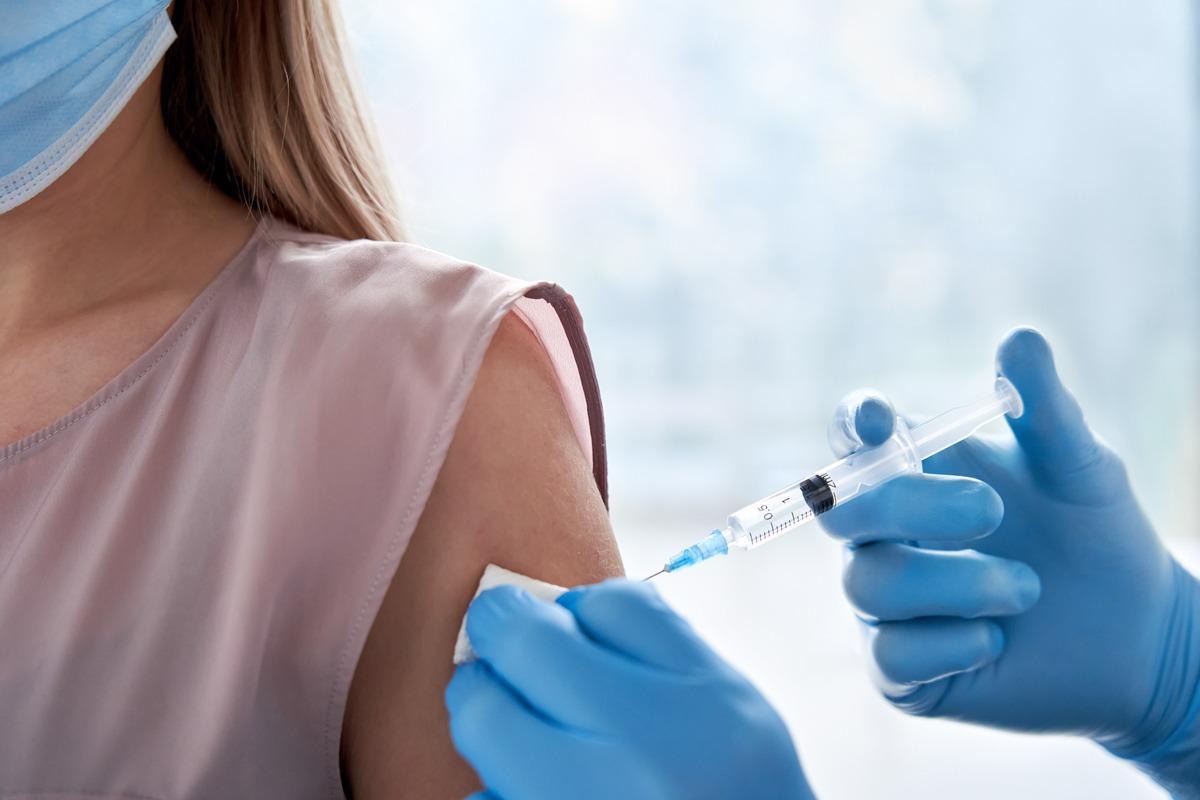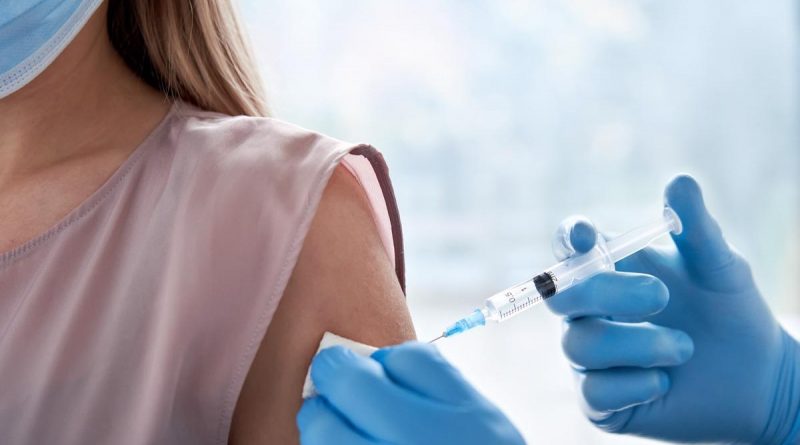Vaccine effectiveness against COVID-19 infection and related hospitalization
In a recent study posted to the medRxiv* preprint server, researchers assessed the effectiveness of coronavirus disease 2019 (COVID-19) vaccines against COVID-19 infections and related hospitalizations.

Severe acute respiratory syndrome coronavirus 2 (SARS-CoV-2) vaccines have played a critical role in curbing the mortality and morbidity caused by the pandemic. However, emerging reports of breakthrough SARS-CoV-2 infections have posed a renewed public health challenge.
About the study
In the present study, the researchers estimated the effectiveness of two and three doses of COVID-19 messenger ribonucleic acid (mRNA) vaccines against SARS-CoV-2 Alpha, Delta, and Omicron variant infection and related hospitalization.
The study population comprised Denmark residents aged 12 years or older in a time period where either the Alpha, Delta, or Omicron variants were dominant. The team included only the first SARS-CoV-2 positive polymerase chain reaction (PCR) test of a participant. They obtained information on all laboratory-confirmed positive reverse transcription-PCR (RT-PCR) results from the Danish microbiology database (MiBa). COVID-19-related hospitalization was defined as a new hospital admission lasting at least 12 hours, occurring within two days prior to or 14 days after the diagnosis with either the SARS-CoV-2 Alpha, Delta, or Omicron variant infection.
Time taken from vaccination to the first diagnosis of symptomatic or asymptomatic SARS-CoV-2 infection or SARS-CoV-2-related hospital admission was analyzed according to three periods where the dominant variant was detected in 75% of RT-PCR confirmed cases: (1) Alpha period from 20 February to 15 June 2021; (2) Delta period from 4 July to 20 November 2021; and (3) Omicron period from 21 December 2021 to 31 January 2022.
The team followed up with the vaccinated participants from the beginning of the study or 14 days after vaccination, which was the date of predicted protection elicited after the second or the third vaccine dose. The follow-up continued till either the participant reported SARS-CoV-2 infection, booster dose vaccination, emigration, the study period ended, or death, whichever occurred first. The unvaccinated participants were followed up from the beginning of the study to the date of their first vaccine receipt, emigration, SARS-CoV-2 diagnosis, end of the study, or death, whichever occurred first.
Results
The study results showed that during the period of SARS-CoV-2 Delta dominance, fewer persons aged 60 years and over were unvaccinated as compared to those during the Alpha period. During the Omicron period, a majority of the individuals aged 12 to 60 and 60 years and above were vaccinated with either two or three vaccine doses. As of 31 January 2022, 85% of the individuals aged between 12 to 59 years and 95% of persons aged 60 years and above were vaccinated with two doses. While as of the same date, three doses were received by almost 64% and 90% of the individuals aged between 18 and 59 years and 60 years and above, respectively.
Among individuals aged 60 years and above, the vaccine effectiveness against infection after two doses was 91% 14 to 30 days after and 71.5% 120 days after vaccination during the Alpha period, and 82.2% 14 to 30 days after, and 49.8% 120 days after vaccination during the Delta period. Among participants aged between 12 to 59 years, the vaccine effectiveness against infection after two doses was 92.2% 14 to 30 days after 64.9% 120 days after vaccination during the Delta period, and 39.8% 14 to 30 days after 13.2% 120 days after vaccination during the Omicron period.
Among participants aged 18 to 59 years, the vaccine effectiveness against infection after three doses was 89.5% 14 to 30 days after and 83.5% 61 to 90 days after vaccination during the Delta period, and 55.2% 14 to 30 days after and 49.9% 120 days after vaccination during the Omicron period. Among participants aged 60 years and above, the vaccine effectiveness against infection after three doses was 57.6% 14 to 30 days after and 52.8% 120 days after vaccination during the Omicron period.
Among individuals aged 60 years and above, the vaccine effectiveness against hospitalization with the SARS-CoV-2 Alpha or Delta variants after two vaccine doses was 96.4% and 100% 14 to 30 days after vaccination, respectively. More than 120 days after the vaccination, the vaccine effectiveness against hospitalization reduced to 90.5% for Alpha and 86.2% for Delta infections. Among individuals aged 60 years and above, the vaccine effectiveness against hospitalization after Delta infection was 96.6% 14 to 30 days after and 91.4% 61 to 90 days after vaccination with three doses. On the other hand, among persons aged between 18 to 59 years, vaccine effectiveness against Delta hospitalization was 94.8% 14 to 30 days after and 68.4% 31 to 60 days after vaccination with three doses.
Overall, the study findings showed that vaccination with a third mRNA dose increased protection against infection and related hospitalization, especially against the SARS-CoV-2 Omicron variant.
*Important notice
medRxiv publishes preliminary scientific reports that are not peer-reviewed and, therefore, should not be regarded as conclusive, guide clinical practice/health-related behavior, or treated as established information.
- Mie Agermose Gram, et al. (2022). Vaccine effectiveness against SARS-CoV-2 infection and COVID-19-related hospitalization with the Alpha, Delta and Omicron SARS-CoV-2 variants: a nationwide Danish cohort study. medRxiv. doi: https://doi.org/10.1101/2022.04.20.22274061 https://www.medrxiv.org/content/10.1101/2022.04.20.22274061v1
Posted in: Medical Science News | Medical Research News | Disease/Infection News
Tags: Coronavirus, Coronavirus Disease COVID-19, covid-19, Hospital, Laboratory, Microbiology, Mortality, Omicron, Pandemic, Polymerase, Polymerase Chain Reaction, Public Health, Respiratory, Ribonucleic Acid, SARS, SARS-CoV-2, Severe Acute Respiratory, Severe Acute Respiratory Syndrome, Syndrome, Transcription, Vaccine

Written by
Bhavana Kunkalikar
Bhavana Kunkalikar is a medical writer based in Goa, India. Her academic background is in Pharmaceutical sciences and she holds a Bachelor's degree in Pharmacy. Her educational background allowed her to foster an interest in anatomical and physiological sciences. Her college project work based on ‘The manifestations and causes of sickle cell anemia’ formed the stepping stone to a life-long fascination with human pathophysiology.
Source: Read Full Article



